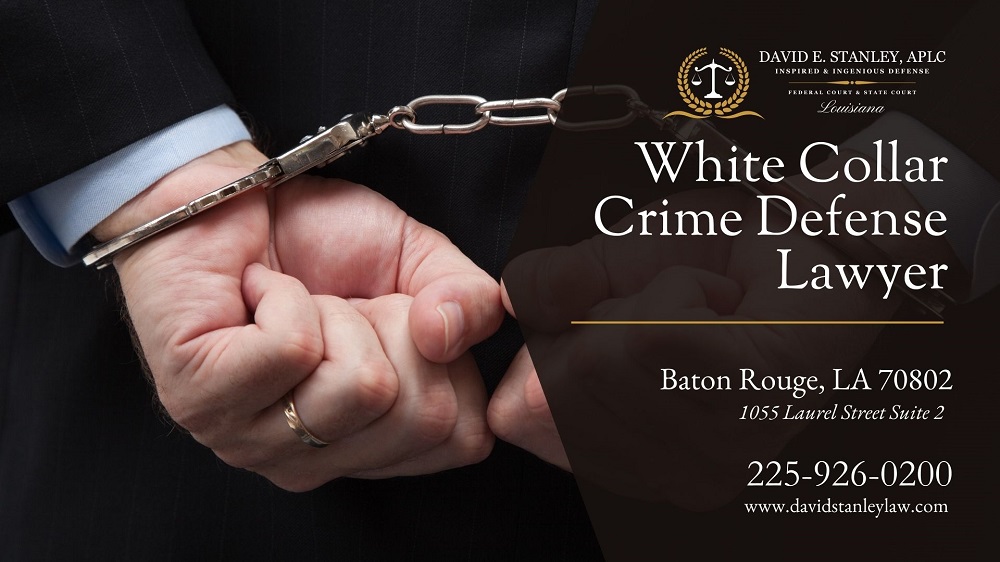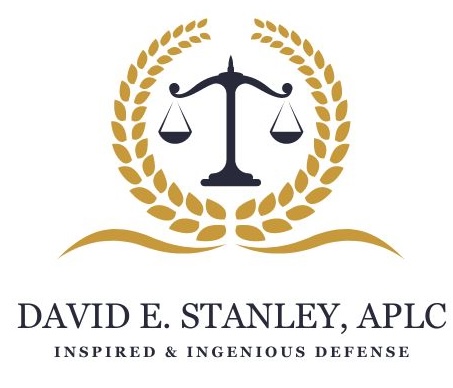Protecting Your Reputation Against White Collar Crime Allegations
Understanding White Collar Crimes
Table of Contents
ToggleWhite-collar crimes involve non-violent offenses typically committed for financial gain. These crimes often require complex investigations and carry significant penalties, including:
- Long prison sentences.
- Substantial fines.
- Permanent damage to your personal and professional reputation.
At David E. Stanley, APLC, we understand the complexities of white-collar crime cases and provide strategic defenses to protect your rights and future.

Types of White Collar Crimes We Defend
Fraud
Fraud encompasses various schemes to deceive others for personal or financial gain. Common examples include:
- Bank Fraud: Using deceptive means to obtain funds from a financial institution.
- Healthcare Fraud: Submitting false claims to insurers or government programs.
- Wire Fraud: Using telecommunications to carry out fraudulent activities.
Identity Theft
Identity theft involves unlawfully using someone else’s personal information, such as Social Security numbers or credit card details, to commit fraud. Convictions can result in severe penalties, especially if linked to larger fraud schemes.
Money Laundering
Money laundering involves disguising the proceeds of illegal activities as legitimate funds. Charges may include:
- Structuring financial transactions to avoid detection.
- Transferring illicit funds through multiple accounts.
Our team investigates every detail, including the validity of the prosecution’s evidence, to craft a strong defense.
Government Benefits Fraud
This crime involves misusing or falsely claiming government benefits, such as unemployment or healthcare subsidies. Prosecution often focuses on:
- Misrepresentation of eligibility.
- Falsifying documents to claim benefits.

How David E. Stanley, APLC, Can Help
Why Choose Us?
- Extensive Experience: Nearly 40 years of defending clients in financial crime cases.
- In-Depth Case Analysis: We uncover weaknesses in the prosecution’s evidence.
- Custom Defense Strategies: Every case is unique, and we tailor our approach to fit your needs.
Frequently Asked Questions
What is considered a white-collar crime?
White-collar crimes are non-violent offenses committed for financial gain, such as fraud, identity theft, and embezzlement.
What are the penalties for white-collar crimes in Louisiana?
Penalties include lengthy prison sentences, fines, restitution payments, and professional consequences like loss of licensing.
Can white collar crime charges be reduced or dismissed?
Yes, an experienced attorney can negotiate plea deals or challenge evidence to reduce or dismiss charges.
Serving Clients Throughout Louisiana
David E. Stanley, APLC provides legal defense for white-collar crimes across:
Criminal Defense Attorney Ascension Parish, LA
Criminal Defense Attorney Baker, LA
Criminal Defense Attorney Baton Rouge, LA
Criminal Defense Attorney Central City, LA
Criminal Defense Attorney East Baton Rouge Parish, LA
Criminal Defense Attorney East Feliciana Parish, LA
Criminal Defense Attorney Greenwell Springs, LA
Criminal Defense Attorney Iberville Parish, LA
Criminal Defense Attorney Lafayette Parish, LA
Criminal Defense Attorney Livingston Parish, LA
Criminal Defense Attorney Pointe Coupee Parish, LA
Criminal Defense Attorney Pride, LA
Criminal Defense Attorney St. Tammany Parish, LA
Criminal Defense Attorney Tangipahoa Parish, LA
Criminal Defense Attorney West Baton Rouge, LA
Criminal Defense Attorney West Feliciana Parish, LA
Criminal Defense Attorney Zachary, LA
Facing financial crime charges? Contact us at
- 225-926-0200
- 1055 Laurel St #2, Baton Rouge, LA 70802, United States
- Mon – Thur : 08:00 – 05:00
Fri: 08:00 – 12:00


